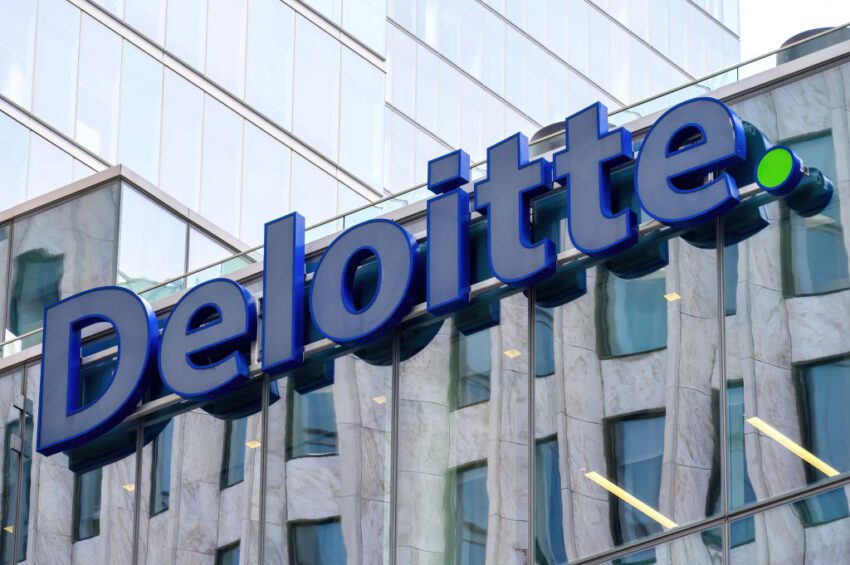
why deloitte is betting big on ai Deloitte’s recent decision to implement Anthropic’s AI model, Claude, across its global workforce comes amid significant scrutiny following a $10 million refund mandated by the Australian government due to issues with an AI-generated report.
why deloitte is betting big on ai
Deloitte’s AI Strategy: A Bold Move
Deloitte, one of the largest professional services firms in the world, has made headlines with its ambitious plans to integrate artificial intelligence into its operations. The firm announced that it will roll out Anthropic’s Claude, an advanced AI model, to all 500,000 employees. This move is part of a broader strategy to leverage AI technologies to enhance productivity, streamline operations, and improve client services.
The decision to adopt Claude reflects Deloitte’s commitment to staying at the forefront of technological innovation. By integrating AI into its workforce, Deloitte aims to empower employees with tools that can assist in data analysis, decision-making, and client interactions. This initiative is expected to enhance the firm’s capabilities in various sectors, including consulting, audit, and tax services.
The Promise of AI in Enterprise
AI technologies have been heralded for their potential to revolutionize business operations. From automating routine tasks to providing insights through data analysis, AI can significantly enhance efficiency and decision-making processes. Deloitte’s investment in AI is indicative of a larger trend within the enterprise sector, where companies are increasingly looking to adopt AI solutions to gain a competitive edge.
However, the rollout of AI in enterprise settings has not been without challenges. Many organizations have reported inconsistent results when implementing AI technologies. While some have experienced significant improvements in productivity and efficiency, others have faced hurdles related to data quality, integration issues, and ethical considerations surrounding AI use.
The Australian Government’s Refund Mandate
On the same day that Deloitte announced its AI rollout, the Australian government mandated the firm to refund a $10 million contract. This decision was prompted by the discovery that an AI-generated report contained numerous fake citations, raising serious concerns about the reliability and accuracy of AI-generated content.
The report in question was part of a project commissioned by the Australian government, aimed at providing insights and recommendations based on data analysis. However, the inclusion of fabricated citations undermined the credibility of the findings and led to a loss of trust in Deloitte’s capabilities. This incident serves as a cautionary tale for organizations looking to adopt AI technologies without a robust framework for ensuring data integrity and accuracy.
Implications of the Refund
The refund mandated by the Australian government has significant implications for Deloitte and the broader consulting industry. It raises questions about the reliability of AI-generated content and the ethical responsibilities of firms that utilize AI technologies. As organizations increasingly rely on AI for critical decision-making processes, ensuring the accuracy and integrity of AI outputs becomes paramount.
Moreover, the incident highlights the importance of human oversight in AI applications. While AI can process vast amounts of data quickly, it lacks the contextual understanding and critical thinking skills that human professionals possess. This underscores the need for a balanced approach that combines AI capabilities with human expertise to ensure high-quality outcomes.
Stakeholder Reactions
The reactions to Deloitte’s AI rollout and the subsequent refund have been mixed among stakeholders. Some industry experts view the integration of AI as a necessary evolution in the consulting sector, while others express concerns about the potential pitfalls of relying too heavily on AI technologies.
Support for AI Integration
Proponents of AI integration argue that the technology can drive significant efficiencies and improve service delivery. By automating routine tasks, employees can focus on higher-value activities that require critical thinking and creativity. This shift could lead to enhanced job satisfaction and improved outcomes for clients.
Furthermore, supporters contend that AI can provide valuable insights that would be difficult for humans to uncover alone. For instance, AI can analyze large datasets to identify trends and patterns, enabling organizations to make data-driven decisions. In this context, Deloitte’s investment in AI is seen as a forward-thinking move that positions the firm for future success.
Concerns About AI Reliability
On the other hand, critics caution against the uncritical adoption of AI technologies. The incident with the Australian government highlights the risks associated with relying on AI-generated content without adequate oversight. Critics argue that organizations must prioritize data integrity and ensure that AI outputs are subject to rigorous validation processes.
Moreover, there are ethical considerations surrounding the use of AI in decision-making. As AI systems become more prevalent, questions arise about accountability and transparency. Who is responsible when an AI system produces inaccurate or misleading information? These concerns underscore the need for clear guidelines and ethical frameworks governing AI use in enterprise settings.
The Future of AI in Consulting
Despite the challenges and concerns surrounding AI integration, the future of AI in consulting appears promising. As organizations continue to explore the potential of AI technologies, several trends are likely to shape the landscape in the coming years.
Increased Focus on Data Quality
One key trend is the growing emphasis on data quality and integrity. Organizations are recognizing that the effectiveness of AI systems is directly tied to the quality of the data they are trained on. As a result, firms are investing in data governance frameworks to ensure that data is accurate, reliable, and free from bias.
Human-AI Collaboration
Another trend is the increasing focus on human-AI collaboration. Rather than viewing AI as a replacement for human workers, organizations are beginning to see it as a tool that can augment human capabilities. This collaborative approach allows employees to leverage AI technologies while retaining the critical thinking and creativity that are essential for complex problem-solving.
Ethical AI Practices
Finally, there is a growing recognition of the need for ethical AI practices. Organizations are beginning to establish guidelines and frameworks to govern the use of AI technologies, ensuring that they are deployed responsibly and transparently. This includes addressing issues related to bias, accountability, and the ethical implications of AI-driven decision-making.
Conclusion
Deloitte’s ambitious rollout of Anthropic’s Claude across its global workforce represents a significant step in the firm’s journey to embrace AI technologies. However, the recent refund mandated by the Australian government serves as a stark reminder of the challenges and risks associated with AI integration. As organizations navigate the complexities of AI adoption, it is crucial to prioritize data quality, human oversight, and ethical considerations to ensure successful outcomes.
As the consulting industry continues to evolve, the lessons learned from Deloitte’s experiences will undoubtedly shape the future of AI in enterprise settings. By fostering a culture of collaboration between humans and AI, organizations can harness the full potential of these technologies while mitigating the risks associated with their use.
Source: Original report
Was this helpful?
Last Modified: October 11, 2025 at 6:38 am
3 views















